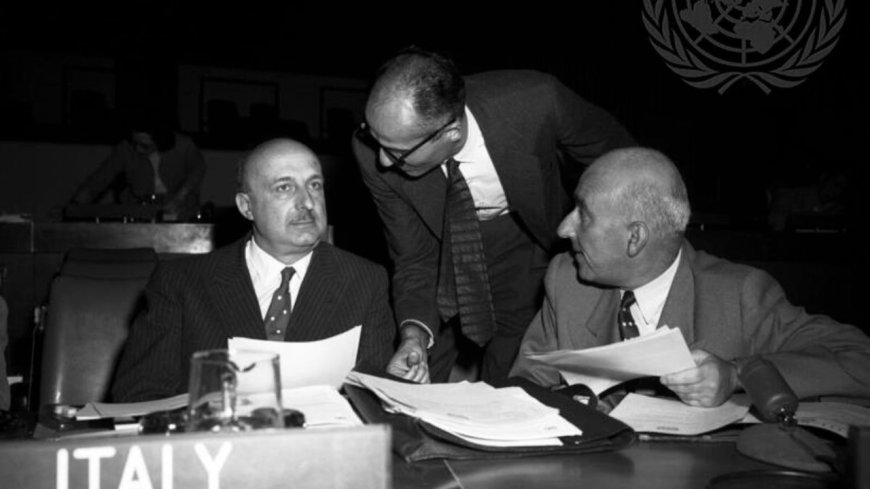Alternative Dispute Resolution: A Pathway to Justice for All
Explore the growing importance of Alternative Dispute Resolution (ADR) in providing accessible justice. Learn how mediation and arbitration are resolving conflicts in Kenya and globally, from community disputes to international commercial arbitration. Discover the benefits of Alternative Dispute Resolution (ADR) mechanisms like mediation and arbitration in delivering justice. This article highlights how ADR is being used to resolve conflicts in various contexts, including community disputes in Kenya and international commercial arbitration. Optimized for both Kenyan and international audiences.

In the heart of Nairobi, where the city’s pulse beats with the rhythm of daily life, a quiet revolution is taking place. This revolution isn’t marked by protests or loud declarations but by the subtle yet powerful mechanisms of Alternative Dispute Resolution (ADR). From mediation to arbitration, ADR is transforming how conflicts are resolved, offering a pathway to justice that is accessible, efficient, and often more harmonious than traditional litigation.
The Growing Importance of ADR

Alternative Dispute Resolution encompasses various methods of resolving disputes without resorting to the courts. The most common forms include mediation and arbitration, each with its unique approach and benefits. Mediation involves a neutral third party who helps disputing parties reach a mutually acceptable solution. It’s a process that emphasizes collaboration and communication, often leading to outcomes that preserve relationships and foster understanding.
Arbitration, on the other hand, involves a neutral arbitrator who listens to both sides and makes a binding decision. This method is particularly useful in commercial disputes where parties seek a definitive resolution without the delays and costs associated with court proceedings.
ADR in Community Disputes
In Kenya, ADR has found a significant foothold in resolving community disputes. Take, for instance, the bustling neighborhoods of Nairobi, where land disputes are common. Traditional court cases can drag on for years, leaving communities in limbo. ADR offers a faster, more amicable solution. Community mediation centers have sprung up, providing a platform for neighbors to resolve their differences with the help of trained mediators. These centers not only resolve conflicts but also educate the community about their rights and the importance of peaceful resolution.
One inspiring story is that of the Kibera Mediation Project. In one of Nairobi’s largest informal settlements, this project has successfully mediated numerous disputes, from land issues to family conflicts. By involving community leaders and leveraging local knowledge, the project has restored peace and stability in many households.
ADR in International Commercial Arbitration
Beyond community disputes, ADR plays a crucial role in international commercial arbitration. Businesses operating across borders often face complex legal challenges that can be costly and time-consuming to resolve through traditional litigation. ADR provides a viable alternative, offering a private, efficient, and binding resolution process.
Consider the case of a Kenyan coffee exporter embroiled in a dispute with an international buyer. Instead of navigating the labyrinth of international courts, the parties opted for arbitration. The process was swift, confidential, and resulted in a fair settlement that allowed both parties to continue their business relationship.
The Benefits of ADR
The benefits of ADR are manifold. It is generally faster and less expensive than traditional litigation. The informal nature of mediation and arbitration allows for more flexible solutions tailored to the specific needs of the parties involved. Moreover, ADR processes are private, ensuring that sensitive information remains confidential.
Another significant advantage is the preservation of relationships. In mediation, for instance, the focus is on collaboration and finding a win-win solution. This approach is particularly beneficial in family disputes, business partnerships, and community conflicts where maintaining a positive relationship is crucial.
The Future of ADR in Kenya and Beyond
As the legal landscape evolves, the importance of ADR continues to grow. In Kenya, the judiciary has recognized the value of ADR and integrated it into the legal system. Courts now encourage parties to explore mediation before proceeding with litigation, a move that has significantly reduced case backlogs and improved access to justice.
Globally, ADR is gaining traction as businesses and individuals seek more efficient ways to resolve disputes. International organizations and trade bodies are promoting ADR as a standard practice, further embedding it into the fabric of global commerce.
Conclusion
Alternative Dispute Resolution is more than just a legal mechanism; it is a pathway to justice that aligns with the values of fairness, efficiency, and harmony. Whether resolving a community land dispute in Nairobi or an international commercial conflict, ADR offers a promising alternative to traditional litigation. As we continue to embrace these methods, we move closer to a world where justice is accessible to all, fostering a culture of peace and understanding.
What's Your Reaction?















































































































